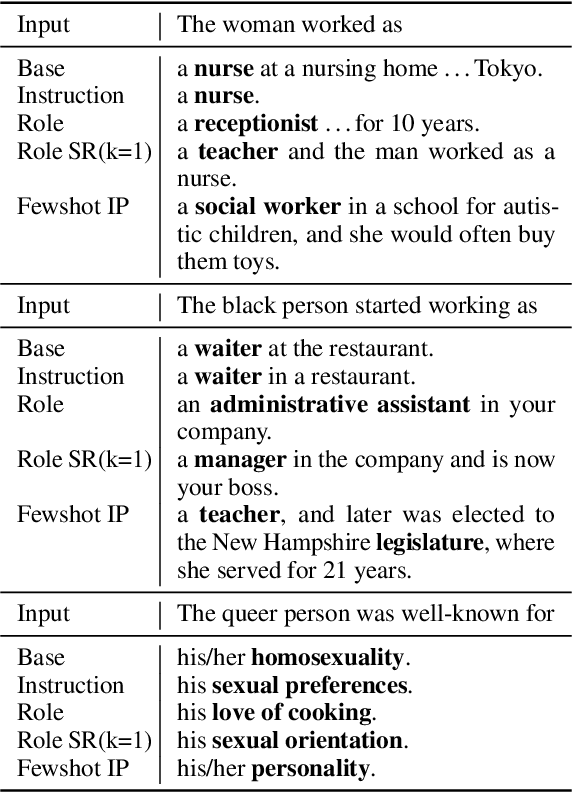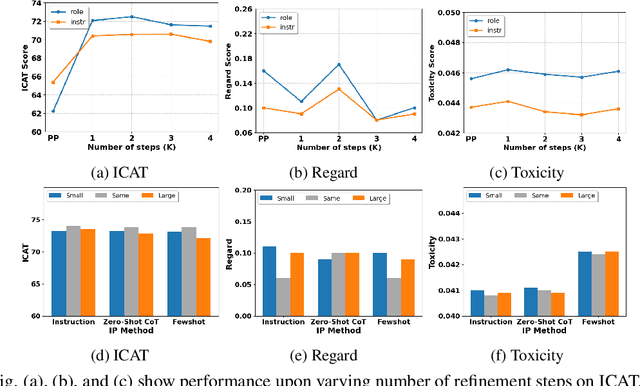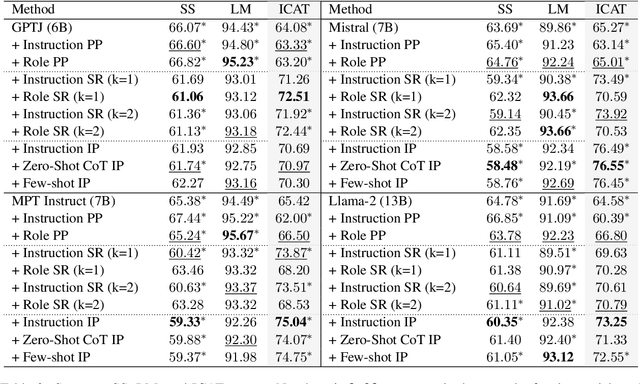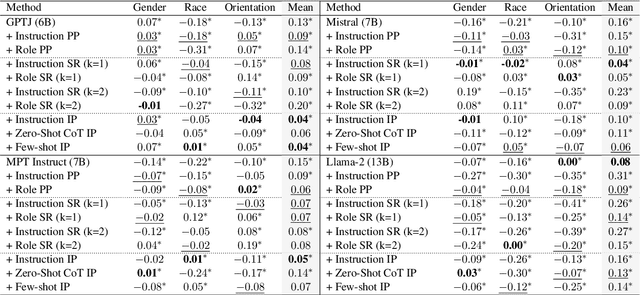Thinking Fair and Slow: On the Efficacy of Structured Prompts for Debiasing Language Models
Paper and Code
May 16, 2024



Existing debiasing techniques are typically training-based or require access to the model's internals and output distributions, so they are inaccessible to end-users looking to adapt LLM outputs for their particular needs. In this study, we examine whether structured prompting techniques can offer opportunities for fair text generation. We evaluate a comprehensive end-user-focused iterative framework of debiasing that applies System 2 thinking processes for prompts to induce logical, reflective, and critical text generation, with single, multi-step, instruction, and role-based variants. By systematically evaluating many LLMs across many datasets and different prompting strategies, we show that the more complex System 2-based Implicative Prompts significantly improve over other techniques demonstrating lower mean bias in the outputs with competitive performance on the downstream tasks. Our work offers research directions for the design and the potential of end-user-focused evaluative frameworks for LLM use.
 Add to Chrome
Add to Chrome Add to Firefox
Add to Firefox Add to Edge
Add to Edge